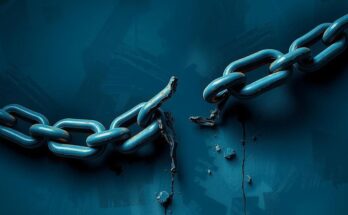The European Parliament adopted resolutions addressing human rights violations in the DRC, Iran, and Algeria. The resolutions call for judicial reforms, the abolition of the death penalty, and the release of detained activists. Notably, they condemn unjust death sentences, promote freedom of expression, and criticize hostage diplomacy, reflecting a broader commitment to uphold human rights and democratic values.
On Thursday, the European Parliament adopted resolutions condemning human rights violations in the Democratic Republic of the Congo (DRC), Iran, and Algeria. These resolutions highlight the urgent need for reforms, the abolition of the death penalty, and the protection of freedom of expression. Notable cases discussed include the unjust death sentences in the DRC, the severe repression in Iran, and the immediate release of detained individuals in Algeria.
In the DRC, the European Parliament expressed strong condemnation of death sentences, particularly that of Jean-Jacques Wondo, and emphasized the violations of fair trial rights. Concern was raised over Wondo’s health, leading to calls for his release and access to medical care. MEPs urged the DRC government to implement systemic judicial reforms and to maintain a moratorium on the death penalty towards its complete abolition.
The resolution regarding Iran criticizes the regime’s excessive repression and the use of the death penalty, advocating for its immediate moratorium and eventual abolition. The Parliament also called for the release of political prisoners, including human rights activist Pakhshan Azizi and humanitarian worker Wrisha Moradi. Members expressed solidarity with the Iranian “Woman, Life, Freedom” movement and condemned hostage diplomacy, urging the release of EU nationals detained in Iran.
Concerning Algeria, the MEPs called for the immediate release of writer Boualem Sansal and other activists detained for exercising freedom of speech. They urged a review of repressive laws limiting freedoms and highlighted the importance of protecting judicial independence. The Parliament insisted that future EU funds be contingent on Algeria’s adherence to the rule of law and progress regarding democratic institutions.
Collectively, these resolutions reflect the European Parliament’s commitment to advocating for human rights, focusing on critical cases of injustice, and encouraging significant reforms in the respective nations. These actions underscore the need for international accountability and the prioritization of individual rights across global governance.
Recent human rights violations in the Democratic Republic of the Congo, Iran, and Algeria have prompted the European Parliament to take a formal stance by adopting resolutions condemning these breaches. Death sentences, repression of activists, and the need for judicial reform were significant topics addressed. The resolutions aim to hold these countries accountable and support efforts to enhance human rights and freedoms. The focus on various cases, including the severe conditions in the DRC, the violent repression observed in Iran, and the limitations on freedom of expression in Algeria, highlights a pressing need for reform in judicial processes and societal freedoms. Furthermore, these resolutions reflect the broader context of human rights advocacy and the European Parliament’s commitment to sustainable democratic values.
The European Parliament’s resolutions on human rights in the DRC, Iran, and Algeria emphasize the necessity for substantial reforms in judicial systems and the abolition of the death penalty. Each resolution aims to address specific cases of injustice, advocating for the release of political prisoners and the protection of individual rights. The Parliament’s actions reflect a collective commitment to uphold fundamental rights and promote democratic principles in the region. By urging systemic changes and expressing solidarity with activists, the European Parliament highlights the crucial role of international oversight in ensuring accountability and fostering respect for human dignity.
Original Source: europeansting.com




